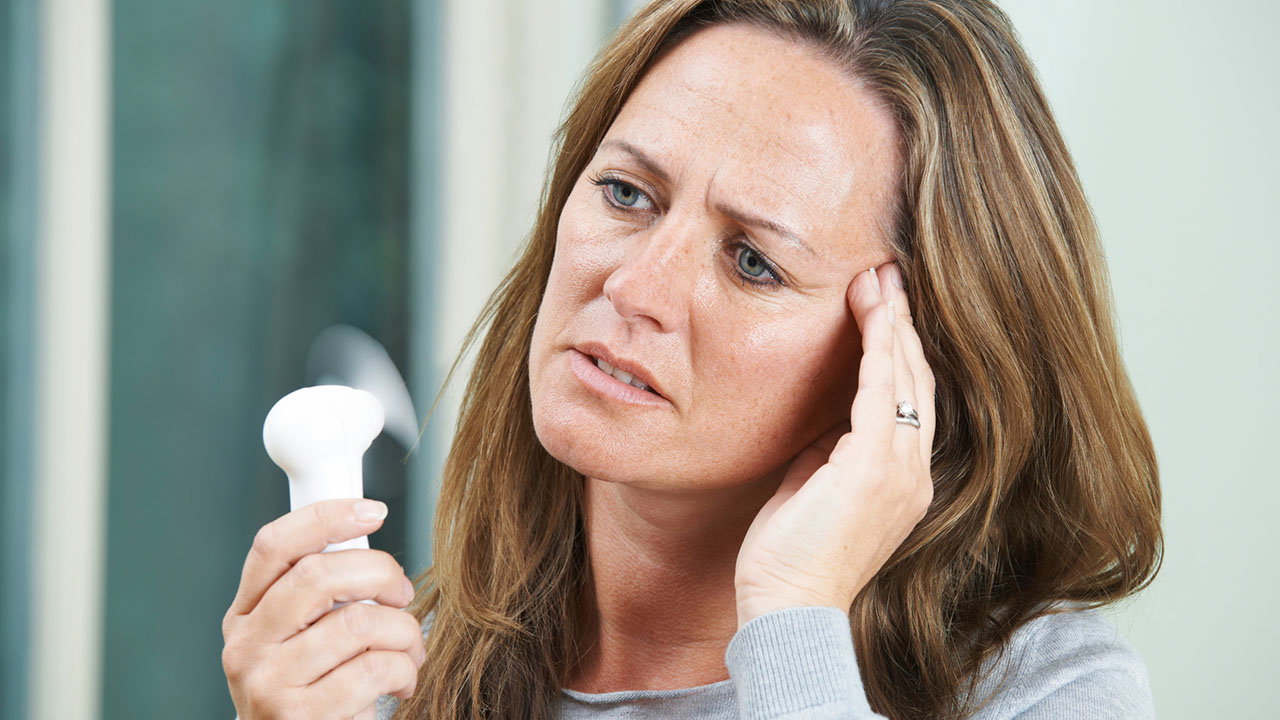 MonkeyBusiness Images/PhotoSpin
MonkeyBusiness Images/PhotoSpin
As women, none of us can avoid the eventual arrival of menopause, that time of life when our hormone levels decrease and our periods end. But if you want to avoid some of the less pleasant symptoms such as hot flashes, you may want to take a look at what you are eating.
Hot flashes are sudden heat surges that can make a woman feel like she is baking from the inside out. Symptoms include flushed skin, a feeling of being overheated, intense sweating and a rapid heartbeat.
While some hot flashes may be unavoidable, research has shown that your diet during menopause can trigger hot flashes or help you avoid them.
A recent study from Australia indicates that women who eat a Mediterranean diet rich in fruit, certain vegetables including garlic and salad greens, pasta and red wine may be less likely to experience hot flashes. The study tracked 6,000 women for over nine years and found that women who most closely followed a Mediterranean diet were 20 percent less likely to experience hot flashes.(1)
That same study also reported that the participants whose diets in menopause were rich in high-sugar and high-fat foods were 23 percent more likely to have hot flashes. But this study was not able to prove that eating certain foods either caused or prevented hot flashes.
The Los Angeles Times reported the results of a separate study that tracked over 17 thousand menopausal women through the Women's Health Initiative. Those assigned to eat a low-fat diet with higher amounts of fruit, vegetables and whole grains were 14 percent more likely to get rid of menopause symptoms including hot flashes and night sweats in the first year than women who maintained their less healthful diet. (2)
This study was published in the July 2012 issue of Menopause by the Kaiser Permanente Division of Research.
Sciencedaily.com also reported on this same study. The article noted that researchers suggest excess body fat provides insulation which can make it harder for the body to get rid of extra heat. Weight loss that focuses on losing fat as opposed to lean body tissue may help reduce hot flashes. (3)
In general, scientists agree that what you eat during menopause can affect the symptoms you experience. Hot and spicy foods are known hot flash triggers for many women, as are alcohol and caffeinated drinks.
If you experience hot flashes, keep track of what you eat to find out what your triggers are then set your own diet for menopause. If you have questions about menopause or if your hot flashes are severe, talk to your health care provider to learn about other treatment options.
Sources:
1. Yahoo News. Reuters. Fruit, Mediterranean diet tied to fewer hot flashes. Genevra Pittman. Web. May 7, 2013.
http://news.yahoo.com/fruit-mediterranean-diet-tied-fewer-hot-flashes-17...
2. The New York Times. Low-Fat Diet May Ease Hot Flashes. Nicholas Bakalar. Web. May 7, 2013.
http://well.blogs.nytimes.com/2012/07/16/low-fat-diet-may-ease-hot-flashes
3. Science Daily. Weight Loss Resulting from a Low-Fat Diet May Help Eliminate Menopausal Symptoms. Web. May 7, 2013.
http://www.sciencedaily.com/releases/2012/07/120711101030.htm
4. Mayo Clinic. Hot flashes. Web. May 7, 2013.
http://www.mayoclinic.com/health/hot-flashes/DS01143/DSECTION=lifestyle-...
Reviewed May 8, 2013
by Michele Blacksberg RN
Edited by Jody Smith






Add a Comment1 Comments
I Think The Magazine is very informative. It puts good unsight in my daily living. As A woman over 50 there is so much info that I need...I am interested in EmpowHER Newsletter
November 20, 2013 - 11:30amThis Comment